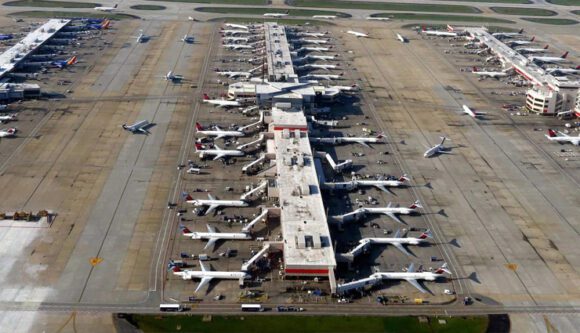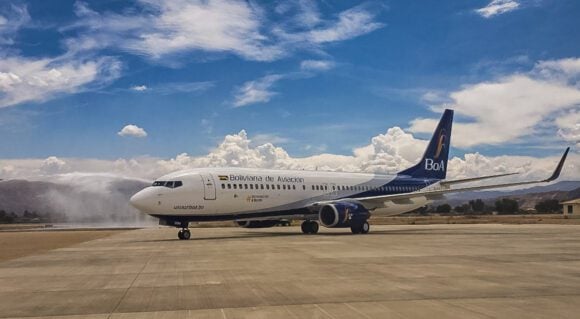
heathrow 1758111122836
UPDATE Jan 5 – IATA is “extremely disappointed” that individual countries have introduced Covid tests for passengers arriving from China. The airline’s lobby group Director General, Willie Walsh, says this is a “knee-jerk reinstatement of measures that have proven ineffective over the last three years.” Airlines for Europe and ACI Europe are also critical. IATA and A4E disappointed about new Covid restrictions.
Walsh responded on January 4 to the measures that are a response to the rising number of Covid infections in China since the administration dropped its zero-Covid policy in early December. This change has resulted in thousands of deaths and millions of infections in China, with most casualties being elderly people that had little or no protection against the Omicron variant. Since December, Beijing has further reopened the country and is allowing its citizens to travel abroad again from January 8.
The reopening immediately caused concern. In Europe, Italy was one of the first countries to require a PCR test for all travelers from China, after a survey at Milan Malpensa Airport confirmed that some fifty percent of all passengers brought Covid with them. Spain and France have followed suit.
In an EU commission meeting on Wednesday in Brussels, member states decided not to make a PCR test compulsory for travelers arriving from China but strongly recommended this should be done. Travelers are advised to wear face masks at any time on flights to and from China. On Thursday, Germany, Austria, Belgium, Sweden, and Greece said they will require PCR testing for travelers inbound from China. On Friday, The Netherlands followed by announcing a valid test is required from January 10. Elsewhere, the US, Canada, Japan, Australia, India, Qatar, South Korea, Taiwan, and Malaysia amongst others do require a PCR test 48 hours after arrival.
Advocating a different approach
The uncoordinated measures are annoying IATA, which had been advocating a different approach to testing, travel restrictions, and lockdowns on numerous occasions during 2020 and 2021 and as recently during the IATA Media Days in December. In Wednesday’s press statement, IATA says: “Research undertaken around the arrival of the Omicron variant concluded that putting barriers in the way of travel made no difference to the peak spread of infections. At most, restrictions delayed that peak by a few days. If a new variant emerges in any part of the world, the same situation would be expected.”
“That’s why governments should listen to the advice of experts, including the WHO, that advise against travel restrictions. We have the tools to manage Covid-19 without resorting to ineffective measures that cut off international connectivity, damage economies and destroy jobs. Governments must base their decisions on ‘science facts’ rather than ‘science politics’.”
“While China has significantly eased border measures, I urge the Chinese government to remove the need for pre-departure Covid-19 testing for those traveling to China,” Willie Walsh is quoted in the statement.
Indeed, various health specialists have said in recent days that implementing Covid tests make little sense. The virus will spread anyway, while the variant that is currently dominant in China is identical to the one that has been identified in other parts of the world. There is no indication yet that a mutation has emerged.
Joint statement
On Thursday, IATA, Airlines for Europe (A4E), and the Airports Council International ACI Europe issued a joint statement in which they lamented the recommendations made by the EU member states to require a negative Covid test for passengers traveling between China and the EU. “Such a recommendation is at odds with the assessment published by the European Centre for Disease Prevention and Control (ECDC) on 3 January 2023, which confirms that the current surge of Covid-19 cases in China is not expected to impact the epidemiological situation in the EU/EEA. This is because the COVID-19 variants circulating in China are already present in the EU/EEA, as well as the higher immunity acquired by the population of the EU. As such, systematically testing incoming travelers from China cannot be considered a scientifically-driven and risk-based measure.”
The three organizations support the recommendation to test wastewater from airports and aircraft arriving from China. But this requires “detailed consideration of technical and operational practicalities. (…) When required, airports and airlines will do their utmost to facilitate such sampling – on the understanding that it needs to be carried out by the competent health authorities, as airport and airline staff are not qualified to do so.”
The joint statement adds: “While it is regrettable that the recommendations agreed yesterday largely amount to a knee-jerk reaction, it is now vital that they are implemented by EU member states in a full uniform manner – in full compliance with the addendums to the EU Aviation Health Safety Protocol to be published in the coming days by EASA and ECDC. These addendums will provide detailed guidance regarding passenger testing and wastewater testing.”
IATA, A4E, and ACI Europe hope to engage with the EU about the recommendations later this month. They urge the EU and China “to work together and to reconsider at the earliest opportunity their requirements for systematic pre-departure testing of travelers based on a scientifically driven risk assessment.”
Four lessons to be learned
During the Media Days, IATA’s James Wiltshire said that four lessons should be learned from the Covid-crisis, in case a new situation of a pandemic would arise. Measures should be proportionate, risk-based, and time-limited, credentials of traveler’s health status should be shared using mutual-recognized systems and apps, governments should communicate clearly and timely about the measures, and governments should recognize what the effects border closures and travel restrictions have on the economy of countries as well as social costs. IATA calculated that border closures put $1.7 trillion in economic activity and 44.6 million jobs at risk in 2020, the year of the first Covid-wave.
Views: 1



